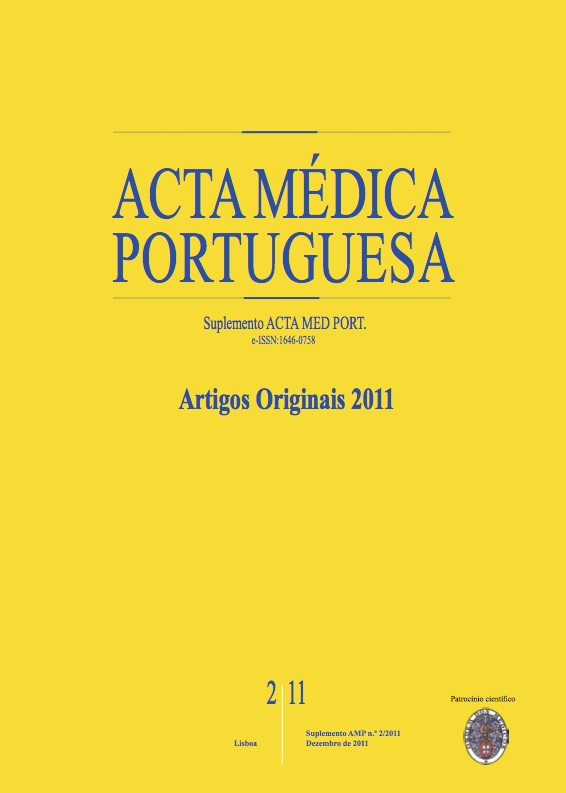Psychometric hepatic encephalopathy score normalization data for the Portuguese population.
DOI:
https://doi.org/10.20344/amp.1485Abstract
The Minimal Hepatic Encephalopathy (MHE) has been associated to changes in life quality and in the aptitude to drive vehicles, to the appearance of an explicit form of Hepatic Encephalopathy and to a worst prognosis, including a high mortality risk. In this context, the early detection of this condition will lead to the reduction of its consequences. The Psychometric Hepatic Encephalopathy Score (PHES) consists in five easily applicable and scored tasks including the Trail Making Test A and B, the Digit Symbol Test, the Serial Dotting Test and the Line Drawing Test. The use of the PHES is recommended by the International Society for Hepatic Encephalopathy and Nitrogen Metabolism, for the MHE diagnosis and monitorization, as long as local translations and normative data are available. The main objective of the present study is the PHES normalization for the Portuguese Population.The tasks that compose the PHES were applied to 115 healthy subjects from four districts of the north of Portugal. Variables like age, gender, education years and the profession type were study in relation to the obtained results through the use of Student's t test and Pearson's correlation. In order to build the normality tables the linear regression was used.Age and education years were the independent variables more related to the performance on the five tasks.The availability of the normality tables will allow the MEH diagnosis in Portuguese patients with hepatic cirrhosis using an objective and internationally recommended method.Downloads
Downloads
How to Cite
Issue
Section
License
All the articles published in the AMP are open access and comply with the requirements of funding agencies or academic institutions. The AMP is governed by the terms of the Creative Commons ‘Attribution – Non-Commercial Use - (CC-BY-NC)’ license, regarding the use by third parties.
It is the author’s responsibility to obtain approval for the reproduction of figures, tables, etc. from other publications.
Upon acceptance of an article for publication, the authors will be asked to complete the ICMJE “Copyright Liability and Copyright Sharing Statement “(http://www.actamedicaportuguesa.com/info/AMP-NormasPublicacao.pdf) and the “Declaration of Potential Conflicts of Interest” (http:// www.icmje.org/conflicts-of-interest). An e-mail will be sent to the corresponding author to acknowledge receipt of the manuscript.
After publication, the authors are authorised to make their articles available in repositories of their institutions of origin, as long as they always mention where they were published and according to the Creative Commons license.









